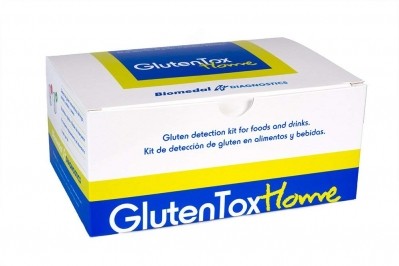Gluten-free baking mix
Gluten-free baking mix startup to evolve into finished goods after rebranding

Davina Steel founded the company three years ago following treatment for breast cancer that left her gluten-intolerant.
“Finding the gluten-free bread offerings in supermarkets grim, I decided to make my own, using my scientific and nutritional background and love of cooking and baking,” she told BakeryandSnacks.
A better story behind the brand
Steel along with her husband, Dan Jennings, spent 18 months experimenting with various recipes at home, and over a period of 18 months, they came up with their first gluten-free bread.
However, business did not take off until their products were named the “best gluten-free bread” by the Tiptree World Bread Awards in 2015. Soon after that, the couple received £50,000 ($66k) from the Grocery Accelerator Ltd., which supports and raises funds for interesting and promising food businesses.
“We used that money to launch our company initially as MannaVida, meaning food of life… but we realized the name Davina Steel can tell a better story for our brand [because Jennings survived cancer]. So we decided to repackage our products six months ago,” said Jennings.
“We brought in some brand specialists, who noted our brand name and packaging were very confusing,” he added.
Davina Steel products, including a line of mixes for focaccia, loaf, scone and pizza, are now also available through their redesigned website.
Jennings noted the company’s recipes and ingredients remain the same, and contain no preservatives.
“Compared to other home-made bread mixes, our products are virtually a cake because they only take about 19 minutes to make from pack to table,” he said.
Producing finished bakery products
Even though Davina Steel’s bakery mixes have been attracting an increasing number of shoppers, Jennings noted many people would rather buy ready-made bread at the food fairs he attended.
“So I started looking to work with a bakery to co-manufacture finished products for us,” he said.
The challenge, however, is that most UK-based commercial bakeries prefer to partner with big companies or small artisan firms, “but not a mid-sized company like us,” he said. Many of these bakery facilities are also not gluten-free.
So now, Davina Steel is hoping to acquire a small bakery after securing enough funding and install equipment required to produce gluten-free products.
According to Jennings, the newly branded company should be able to purchase a production facility within the next six weeks, and get the site up and running by November.
“We anticipate our revenues to be £2m ($2.62m) in 2018, and £20m ($26m) in five years,” he said.











